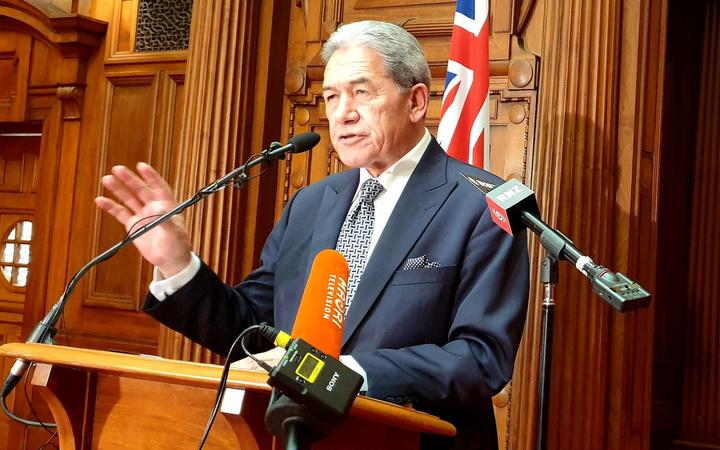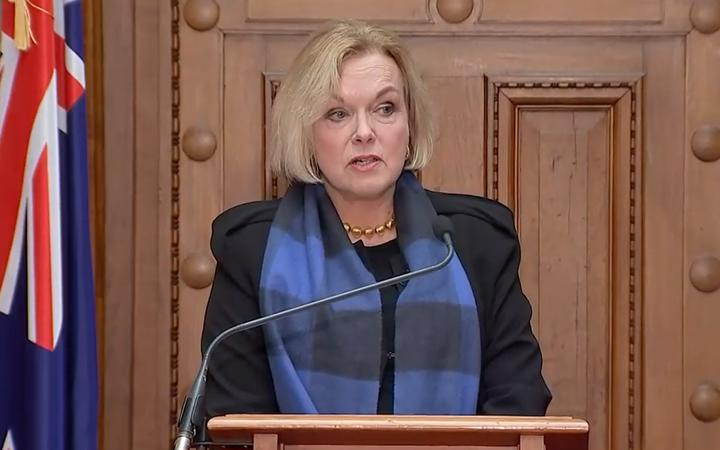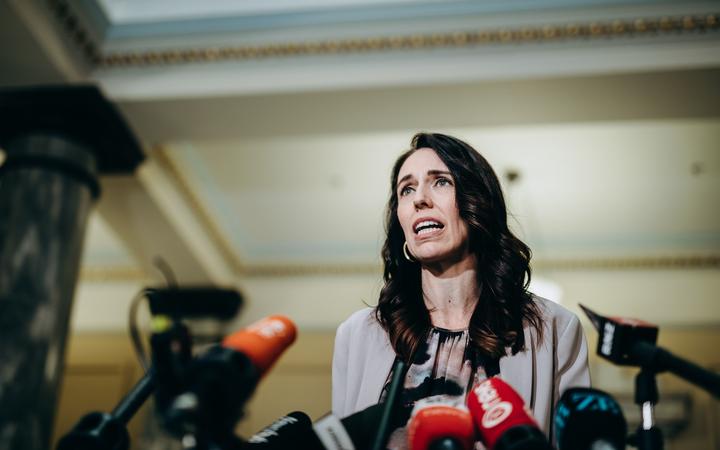New Zealand will find out at 10am if the election will go ahead on 19 September or be delayed.
The Covid-19 outbreak in Auckland has forced the suspension of political campaigning, and prompted calls to postpone the general election.
The decision is solely in the hands of the Prime Minister; Jacinda Ardern has taken the weekend to look at the latest advice from justice officials and speak to a number of different people.
But there's plenty of pressure piling on - with parties, including coalition partner New Zealand First, lining up to argue for a delay. The constitutional clock is also ticking with the dissolution of Parliament scheduled to take place today, after being delayed last week.
If dissolution does not go ahead today, a date later than 19 September will have to be chosen. Ardern's already bought herself some time, but a decision will have to be made today - either way.
She's been sounding out a number of people; one happy to make his views known is New Zealand First leader and Deputy Prime Minister Winston Peters. Deputy Prime Minister Winston Peters called for the election to be postponed.
Deputy Prime Minister Winston Peters called for the election to be postponed.
He released a letter sent to Ardern on 14 August, in which he said community transmission in Auckland had already disrupted electioneering.
Read Winston Peters' letter (PDF: 232KB)
The ability for parties to campaign for a 19 September election had been "fatally compromised," he wrote.
If the level 3 lockdown in Auckland was extended, the legitimacy of next month's election would be undermined, he said, adding it would be "neither free nor fair."
Voters need to hear from all political parties about their Covid-19 response plans and other policies, but until Auckland's alert level drops the "playing field is hopelessly compromised," he said.
- Peters pushes for election to be postponed
- Winston Peters praises Jacinda Ardern, criticises 'woke movement'
- New Zealand a 'prime target' for foreign interference ahead of election, says expert
- Swarm of apparent Twitter bots claim admiration for Winston Peters after difficult week
He released the letter publicly "for the sake of transparency, and because we believe the Governor General of New Zealand needs to know that the majority in the House of Representatives favours an election delay".
If dissolution doesn't happen first, the parliamentary term will automatically expire on 13 October - the latest an election could be held is late November.
With a 75 percent majority, Parliament could delay the election until next year - but even with New Zealand First joining the opposition, those wanting to delay would not have the 90 votes needed without Labour.
Peters says his party still backs coalition partner Labour, so it retains the confidence of the House.
When asked whether that would remain its position if Ardern pushed ahead with 19 September, Peters said he wouldn't talk about "hypotheticals".
His party would do everything it possibly could towards holding "free and fair elections", he said, because otherwise "the quality of this democracy will be seriously diluted, diminished and we'll look back on it as a terrible time in our history".
National's leader Judith Collins says it's impossible to campaign in a way that could produce a fair result, "if a lot of people are frightened to leave your house or even frightened of having postal ballots ... particularly the elderly, many are being too frightened to even receive an envelope because they're worried there could be Covid-19 on them".

National would support 21 November an alternative election date, she says, as it would give parties a "a good opportunity to even start getting the policies out" and time "to cope" with another lockdown in the interim.
The Greens question the wisdom in pushing the date out saying there's no guarantee things will be better at a later date.
ACT says two more week's lockdown for Auckland means the election should be delayed. Leader David Seymour says there should be at least four weeks of campaigning under level 1 before an election could be held.
The Electoral Commission has been planning for an election with physical distancing, sanitising and other precautions, but says a safe election couldn't be held at level 3 or higher.
Sticking with 19 September leaves little wiggle room, if for example, Auckland's restrictions are extended or there's another flare up. Even now with level 3 due to end on 26 August , it's then only a week before overseas voting starts on Wednesday 2 September and advance voting two days later.
An election date of 21 November gives more time but there's still no guarantee New Zealand will be Covid free and it's a longer time to have Parliament not sitting.
Having the election on 17 October eases that problem, while giving an extra month for campaigning.
If the date is pushed back to October or November serious consideration would have to be given to re-establishing something like the opposition-run Epidemic Response committee, if there is to be any formal scrutiny of what the government is doing under its 'resurgence plan'.
In a statement Ardern said she has "proactively sought the views of the leaders of every political party represented in Parliament" and "taken on board" the range of views expressed.
She might be short on time as she weighs her decision - but she won't be short on others' opinions.






